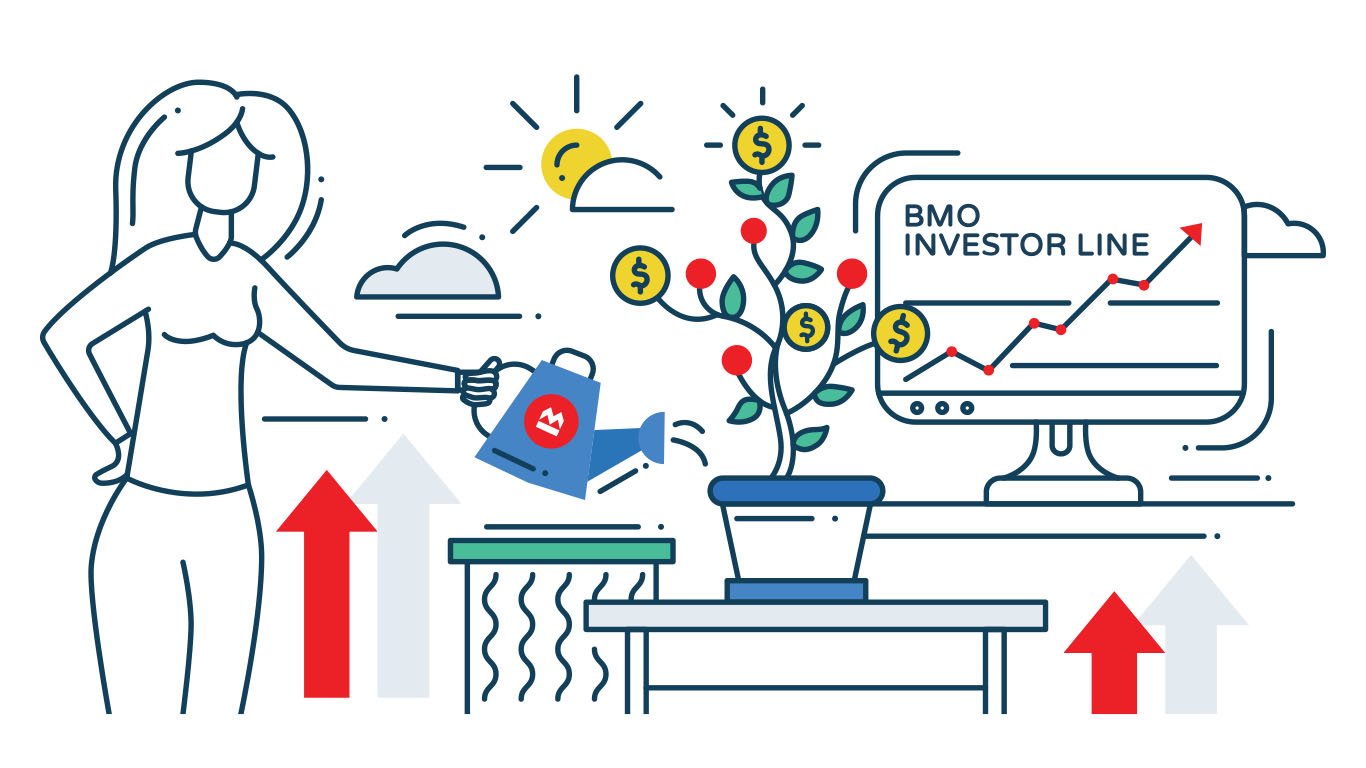In the second tutorial of the series, I show DIY investors how to implement an ETF portfolio at BMO InvestorLine. I’ve also included some additional commentary below that investors should read prior to implementing their portfolio.
Avoiding the annual RRSP administration fee
Investors with less than $25,000 in their RRSP account pay a hefty annual administration fee of $100 plus tax. Unlike TD Direct Investing, BMO does not consider all household RRSP accounts when determining this threshold (so a married couple each with an RRSP account worth $15,000 would both pay the annual administration fee). BMO will also not waive the fee if you set-up a monthly contribution plan to the account.
Watch those cash balances
BMO’s online platform can sometimes take a few moments to update the cash balances after a trade. As a precaution, simply visit the order status screen in-between trades to ensure that each trade has been completed.
As Michael James pointed out in the comment section of my last blog, BMO’s online platform does not include the cost of their $9.95 trading commissions in the cash balance details right away (so while you’re placing your trades, you actually have less cash available than you think).
Not knowing this, I placed the final trade during my tutorial, and thought everything went smoothly. The remaining cash balance was showing a credit of $23.12.
Quoted Cash Balance Details

Source: BMO InvestorLine as of June 11, 2016
When I logged back into the account the following week, I found to my surprise that the cash balance was now showing a debit of $26.63 (for a difference of $49.75, or 5 trades at $9.95 per trade). Luckily, BMO did not charge the account any debit interest, but it was annoying just the same.
Actual Cash Balance Details

Source: BMO InvestorLine as of June 11, 2016
For the final trade
During my BMO tutorial, I advise viewers to first subtract the $9.95 trading commission before calculating the number of shares of the Vanguard Canadian Aggregate Bond Index ETF (VAB) to purchase. For the actual trade, I took the remaining cash balance of $10,095.60, subtracted the $9.95 commission, and divided by the ask price of $25.96, which equals ~388 shares.
In hindsight, I should have taken the final cash balance of $10,095.60 and subtracted the five $9.95 trading commissions that I would be incurring that day (which would have totaled $49.75). I should have then divided by the ask price of $25.96, which would have equaled ~386 shares (so I purchased 2 more shares of VAB than I should have).
For smaller accounts, use less ETFs
Although I’ve shown how to build a 5-ETF portfolio in my tutorial, you can get away with using just three ETFs to cut down on trading commissions. Instead of holding separate ETFs for US, international and emerging markets stocks, simply hold the iShares Core MSCI All Country World ex Canada Index ETF (XAW).
For smaller accounts, find another brokerage
Due to the relatively high and inflexible RRSP annual administration fees, I would suggest using another brokerage if you’re just starting out. BMO’s platform issues with their real-time cash balance details will likely cause additional headaches for DIY investors, which is another reason to consider using a different brokerage.
Stay tuned next week when we’ll learn How to Build an ETF Portfolio at CIBC Investor’s Edge.


Cash sitting in any account with BMOIL does not earn any interest. Is there a HISA that you can use if the cash will not be used for a few months?
@Be’en: If you have at least $5,000 of cash sitting around, you can purchase the BMO High Interest Savings Account (AAT770), but this product has an interest rate of about 0.75%: http://www.canadiancapitalist.com/high-interest-savings-accounts-at-discount-brokers/
If I’m not mistaken, there is EQ online bank that offers 2% on cash sitting in your account, though it changes from time to time. But it’s much better than the “humongous” 0.75% interest from BMO! A 10K$ sitting cash interest is 75$/yr with BMO and 200$ with EQ.
These are great tutorials. I am already working with practice accounts and real accounts, but receiving suggestions and advice, as well as exposure to various common sources is very informative.
@Curt: Thank you for the feedback. Please feel free to share with readers your experiences working with a specific brokerage (both positive or negative).
Non-registered accounts at Investorline are only charged interest if the amount owing in a month exceeds $5 (or at least this was true the last time I checked). This is why people who do small Norbert gambits sometimes don’t get charged interest. However, I’ve found that I have to get Investorline to reverse interest charges just about every time I do a currency exchange with the gambit.
As for the $100 admin fee on registered accounts, they do group accounts together, but they have to be under the same userid. My wife has had a LIRA holding less than $25,000 for many years but has never paid an admin fee because she created a userid that groups all of her accounts, including larger RRSPs. My userid groups my accounts along with a TFSA for my son. That way he doesn’t have to pay the admin fee. We could have put all of our accounts under just a single userid, but there was no benefit in our case. Again, this was all true as of when I last checked.
@Michael James: Thank you for the additional information – I’ve always found RBC Direct Investing to be the best for Norbert’s gambit, but there are still times when they levy debit interest, requiring me to phone them directly.
As for grouping accounts, hopefully we can receive some clarification on this issue from a BMO InvestorLine representative. Their fees and commissions brochure does not specifically mention this, but I’m sure they would take this into consideration.